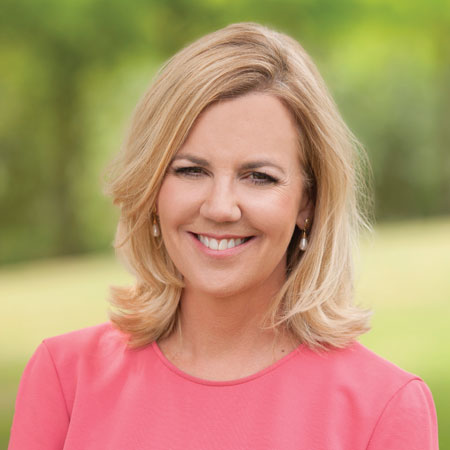Exec Chat: Illumina Enters Second Wave Of Growth As Genomics Demand Swells
Executive Summary
Illumina is capitalizing on the inexorable rise of genomics, as governments around the world step up their focus on precision medicine and deliver higher quality, yet more cost-effective, health care to the population. Paula Dowdy, who joined the firm as head of its EMEA commercial operations a year ago, believes that Europe will lead the charge in making genomics a core component of health care, and the growth story of the company – and the genomics sector as a whole – is far from over. She speaks to Medtech Insight about the parallels between the tech industry, where she had garnered over 20 years' commercial experience, and the genomics sector and gives her perspectives on Illumina's strategies for sustaining the growth trajectory of its EMEA business.
It was just over five years ago that Illumina Inc. was fending off a hostile takeover from diagnostics heavyweight Roche. At that time, Roche's offer of $44.50 per share to buy the genomic analysis technology specialist represented what seemed like a generous premium over Illumina's stock price then, which hovered roughly around the $30 mark before rumors of the acquisition bid started inflating the value.
Illumina held its ground and turned its back on the Swiss group – not without some push back from some of its shareholders – stating in blunt terms that the offer was “grossly inadequate in multiple respects" and "dramatically undervalues Illumina." (Also see "Roche refuses to budge on price in face of snub from Illumina board" - Medtech Insight, 8 Feb, 2012.) (Also see "Illumina sued by shareholders for Roche rebuff" - Medtech Insight, 16 Feb, 2012.)
Snubbing Roche proved to be an astute move. Five years on and Illumina's share price has soared over $100, boasting a range of $160.10-173.52 in the first six months of 2017. Its top-line has more than doubled, from just over $1bn in fiscal 2011 to nearly $2.4bn in fiscal 2016. On Aug 1, the firm will announce its second-quarter 2017 results, and revenue for that period is expected to grow – based on the averaged estimates from 17 analysts – some 7% year-over-year to around $642m, while the outlook for fiscal 2017 is estimated growth of 10% to around $2.65bn.
The rise of Illumina reflects the escalation of genomic medicine over these past few years, boosting the demand for gene-sequencing and analysis solutions that can provide more tailored, personalized health care. The firm has carved itself a position as one of the leading go-to provider of these tools in both the life sciences research space and increasingly the clinical and health care sector. In February 2016, Illumina announced a partnership with Genomics England in which the US firm will develop interpretation and reporting tools for delivering reports on all genomes that are sequenced through the 100,000 Genomes Project. Genomics England will provide access to whole genome sequence and de-identified phenotypic data for the development of this suite of tools for personalized medicine. The tools will be used to curate and manage the knowledge base of information generated over the course of the project with a focus on rare disease and common cancers. The two parties solidified their alliance last month when Genomics England appointed Illumina as the primary vendor of variant interpretation and reporting software for tumor and matched normal samples characterized as part of the 100,000 Genomes Project.
The genomics wave within health care will continue to swell even more, believes Paula Dowdy, Illumina's Senior Vice President and General Manager of Commercial Operations for EMEA.

Paula Dowdy, Illumina's Senior VP and General Manager, Commercial Operations for EMEA
Source: Illumina
Dowdy was appointed to this role exactly this time a year ago, bringing with her over 20 years of experience working for IT and networking leader Cisco. There, she held a number of senior positions leading the firm's product and services groups, and her last role before going to Illumina was Senior Vice President for Cloud, Software, and Managed Services at the tech company. "When I joined Cisco in 1996, it was prior to the internet boom and it was a phenomenal time to join the industry, right as it was taking off and growing through that internet phase. Cisco was already a successful company but the take-up of how important the internet, IP networking, the globalization of data, a voice of everything – all that was not known then," she told Medtech Insight.
While Dowdy did not have a background in life sciences, what intrigued her about the opportunity to be part of Illumina was that the company is now at the same juncture in the genomics revolution as Cisco was in the internet revolution when she joined it in the late 90s. "Cisco's objectives were to change the way we worked, lived and played around the internet, and Illumina is seeking to really impact human health care with its technology, with its vision, with whole genome sequencing."
Drawing further parallels between the tech and genomics industries, Dowdy added that Cisco already had its first big wave of growth with the introduction of the router in the early 1990s, and it was at the cusp of its second wave of growth as a networking company when she joined. Likewise, Illumina has already had its first wave of growth just based on strength of its gene-sequencing and analysis technologies, enabling it to build itself to a $2bn-plus-revenue company it is today. "Now we are at that next phase, moving from a predominantly life sciences research-oriented company to a clinical and healthcare company," she said. "It's interesting when you look at businesses: what got you through wave one won't necessarily get you through wave two, and so the type of leaders you need in the company will change. In wave one, you are focused on the technology, the technology will sell itself and it matters a little less around commercialization and your capability around go-to-market. But in wave two, you are starting to think much more about creating markets.
"It took some time for me to get my head around moving industries but it was clear that [joining Illumina at this point of its growth], I could bring not just leadership experience but also business experience – working across multiple functions, seeing transitions of markets, seeing transitions of ways you go to market, through direct and indirect channels." Additionally, having worked as an American in Europe for a long time, Dowdy felt she was able to bring that translation of what needed to be done differently for a US-based company to be successful in Europe.
In the Q&A below, Dowdy provides an insight into Illumina's strategies for growing its commercial operations in Europe, what she feels the past year's key achievements have been, what are the changing needs of Illumina's customers and how that is driving the company's evolution and growth in coming years.
One of the things to be mindful of is that our CEO Francis deSouza [who was President before assuming the additional role of CEO in July 2016, succeeding Jay Flatley who remains chairman- Ed] had a number of strategies: one was to be more global, two to be more digital, three to be more clinical. I know he also has had a talent strategy where he believes there are certain roles where you can go out of the life sciences sector to get the best in breed; whether that be in commercial, supply chain, IT. Clearly our R&D functions need to have the best and brightest scientists in our industry but there are other areas where we can take advantage of background, experience and ability to scale businesses.
Sales and marketing is arguably becoming more a science than an art, and for us, it's about being much more intelligent about what our customers of the future want from us. Not just from a technology perspective but also an engagement and experience perspective. This is absolutely paramount, but also really challenging for the organization to operate at a higher level.
Also, we are now looking to a longer-term horizon. We're starting to build a three-year business plan versus a one-year business plan and looking at where our future is and where our growth is going to come from; who the customers in our various markets are and who are the leaders in those spaces and how we can help facilitate their success and be a benchmark for others to follow.
It's about running it like a business, starting to have different measures and mechanisms in place. As a start-up company, the only focus will be on revenue but Illumina now has an extensive balance score card, which looks at how we are developing our pipeline, how our customers are responding to our service and support, how we are adopting e-commerce, and what the feedbacks on our marketing programs are. So it's taking it to a level of sophistication where we can measure the impact of the investments we are making in the European market.
And making sure our San Diego leadership is attuned to the fact that while you may have bigger labs and service providers in the US, over time, having a very distributed set of innovators in France, Germany, could actually drive more success. Because ultimately, you want as much science and as much genomics in as many places as possible to facilitate not only the success of the company but also of the industry. So it's not just about the technology, it's about the people it's about the skills, the buy-in from governments. An example is our partnership with Genomics England and there are many other country-based genomic medicine programs in the works all wanting to take advantage of precision medicine and having a more integrated approach to healthcare.
You'll also likely see more collaborations between Illumina, pharma companies and other large players to focus around precision medicine. There will also be more integrated population-based health care, where genomics will be a core component of a country's health care system and Europe will lead in that, with the uniqueness of our market here. That's how I see our next five years will be.
Of course, we will continue to very much focus on our research institutions: we are now segmenting that part of the business – we have research, we have clinical research, peer clinical and other domains and everything is becoming closer together. It's an exciting time.
From the editors of Clinica
